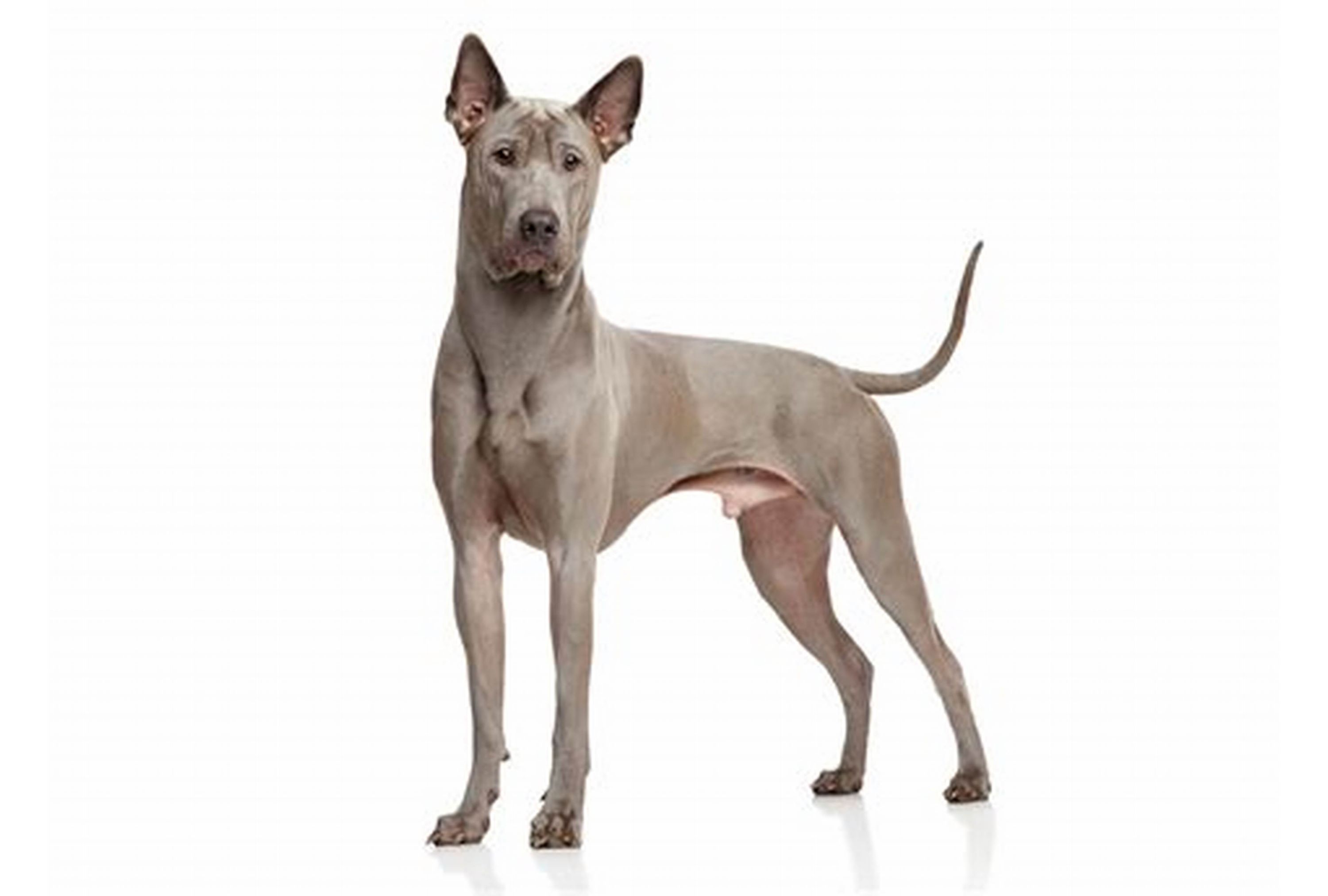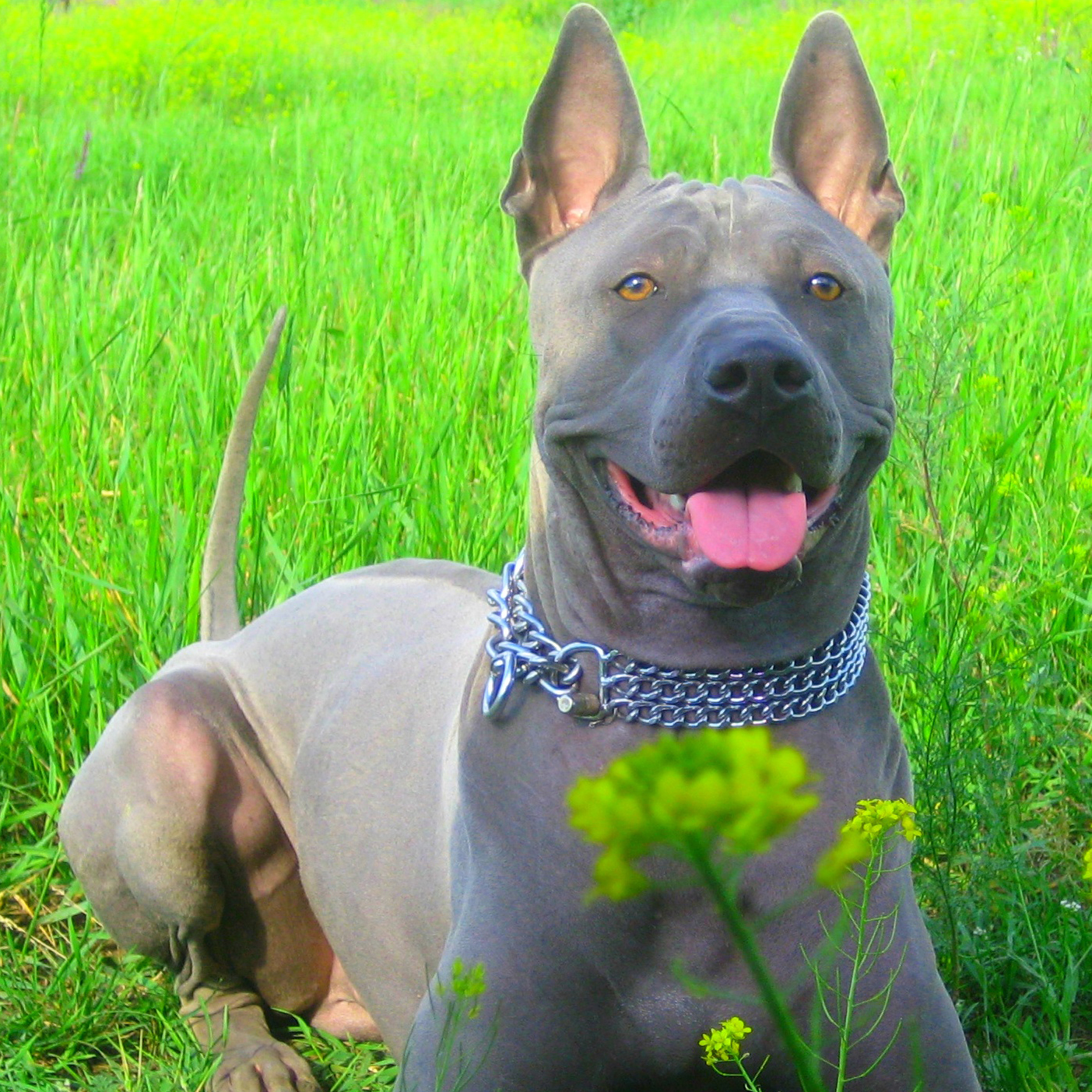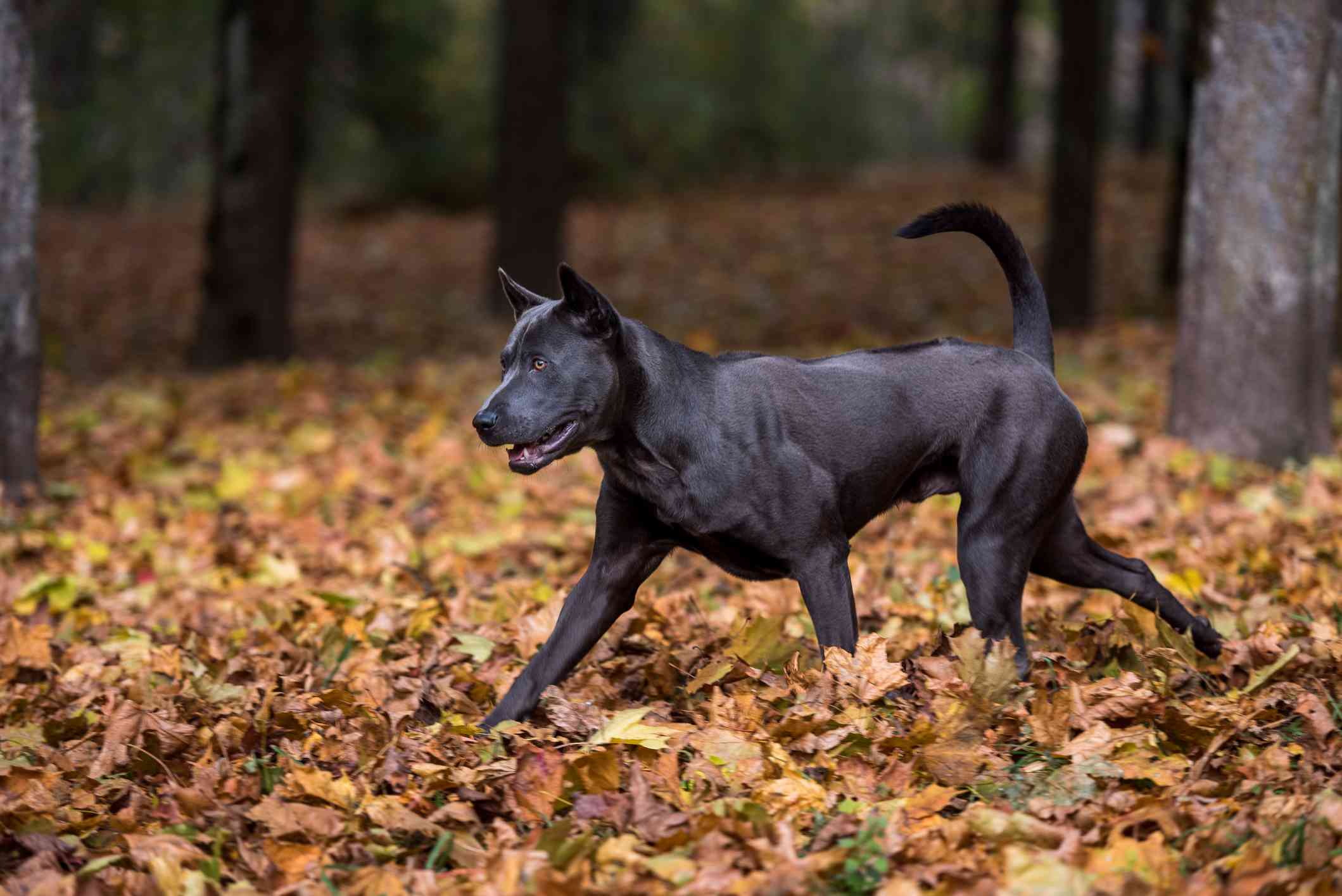
The Thai Ridgeback is an ancient and rare breed originating from Thailand, where it was traditionally used as a hunting, guarding, and companion dog in remote, rural regions. Its history spans over 400 years, and the breed is considered one of the few natural ridgebacked dogs in the world — alongside the Rhodesian Ridgeback and Phu Quoc Ridgeback.
Isolated in eastern Thailand, especially in areas with little road infrastructure, the breed developed without significant crossbreeding, retaining its primitive traits. Historically, Thai Ridgebacks hunted game, protected homes, and accompanied travelers through rugged terrain. The breed gained international interest in the 20th century due to its striking appearance, agility, and loyal nature.
Although relatively rare outside Thailand, the Thai Ridgeback has garnered attention in North America, Europe, and Asia as an exotic and loyal companion. It has been recognized by the American Kennel Club (AKC – Foundation Stock Service) and other international kennel clubs, with enthusiasts drawn to its unique ridge, athleticism, and ancient lineage.
The Thai Ridgeback is medium-sized, muscular, and graceful, characterized by the distinctive ridge of hair along its back that grows opposite the rest of its coat.
• Height: 20–24 inches (51–61 cm)
• Weight: 35–75 pounds (16–34 kg)
• Build: Sleek, athletic, well-balanced
• Coat: Short, smooth, and fine
• Color: Solid colors — red, black, blue (gray), and fawn
• Ridge: Distinctive ridge with up to eight recognized patterns
• Head: Wedge-shaped with pronounced cheek muscles
• Eyes: Almond-shaped, dark (amber in blue-coated dogs)
• Ears: Medium-sized, triangular, carried erect
• Tail: Thick at the base, tapering to a point, carried upward in a curve
Their elegant yet powerful physique reflects both their agility and guarding instincts.
This breed is intelligent, independent, and fiercely loyal to its family, with strong protective instincts.
• Loyal: Forms deep bonds with family members and is protective
• Independent: Can be aloof with strangers and self-reliant
• Energetic: Active and agile, enjoys athletic pursuits
• Alert: Naturally wary of unfamiliar people, making an excellent watchdog
• Trainable: Smart but requires patient, consistent training due to independence
Early socialization and positive reinforcement training are essential to foster a well-rounded companion.

The Thai Ridgeback is ideal for:
• Experienced dog owners who appreciate independent and intelligent breeds
• Active individuals or families seeking a versatile guardian and companion
• Those interested in a rare, exotic, and ancient breed
• Owners who enjoy dog sports (agility, lure coursing, obedience)
However, it may not be ideal for:
• First-time dog owners
• Families with very young children (due to independence and guarding instincts)
• Homes unprepared for regular exercise and mental stimulation
Proper care and socialization ensure a happy and well-adjusted Thai Ridgeback.
• Exercise: High; thrives with daily vigorous walks, runs, and playtime
• Training: Needs early socialization and firm but gentle training
• Grooming: Low; weekly brushing and occasional baths
• Living Environment: Best suited for homes with securely fenced yards
• Feeding: Balanced, high-quality diet suitable for active medium-sized dogs
They excel with owners who can balance physical exercise and mental engagement.
The Thai Ridgeback is generally healthy and hardy but may have some genetic considerations:
• Dermoid sinus (a congenital skin condition linked to the ridge gene)
• Hip dysplasia (less common)
• Allergies or skin sensitivities (occasionally)
The breed typically enjoys a lifespan of 12 to 15 years.

• Rhodesian Ridgeback: Larger and more robust; bred for lion hunting in Africa
• Phu Quoc Ridgeback: Smaller and rarer cousin from Vietnam
• Basenji: Similar independent and primitive traits but smaller and barkless
If you seek a striking, loyal, and independent guardian with deep historical roots and exotic beauty, the Thai Ridgeback may be the perfect choice. This breed thrives with confident, experienced owners who can provide consistent leadership and affection.
Work with reputable breeders who perform health screenings (especially for dermoid sinus) and socialize their puppies well. Breed clubs and rescue organizations may occasionally have adoptable Thai Ridgebacks.
United Pet Club offers resources such as training guides, health tracking tools, and microchip registration to support Thai Ridgeback owners in raising well-adjusted companions.